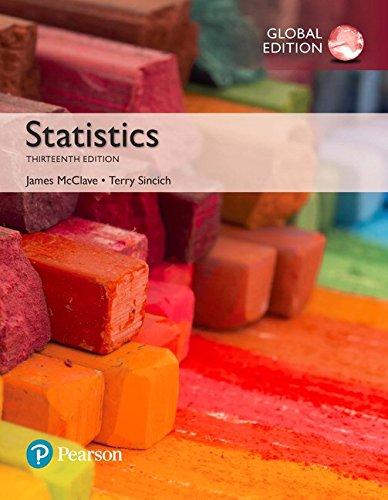Fingerprint expertise. A study published in Psychological Science (Aug. 2011) tested the accuracy of experts and novices
Question:
Fingerprint expertise. A study published in Psychological Science (Aug. 2011) tested the accuracy of experts and novices in identifying fingerprints. Participants were presented pairs of fingerprints and asked to judge whether the prints in each pair matched. The pairs were presented under three different conditions: prints from the same individual
(match condition), non-matching but similar prints
(similar distracter condition), and non-matching and very dissimilar prints (non-similar distracter condition). The percentages of correct decisions made by the two groups under each of the three conditions are listed in the table.
Condition Fingerprint experts Novices Match 92.12% 74.55%
Similar Distracter 99.32% 44.82%
Non-similar Distracter 100% 77.03%
Source: Tangen, J. M., et al. “Identifying fingerprint expertise.”
Psychological Science, Vol. 22, No. 8, Aug. 2011 (Figure 1).
a. Given a pair of matched prints, what is the probability that an expert will fail to identify the match?
b. Given a pair of matched prints, what is the probability that a novice will fail to identify the match?
c. Assume the study included 10 participants—5 experts, and 5 novices. Suppose that a pair of matched prints are presented to a randomly selected study participant and the participant fails to identify the match. Is the participant more likely to be an expert or a novice?
Step by Step Answer:






